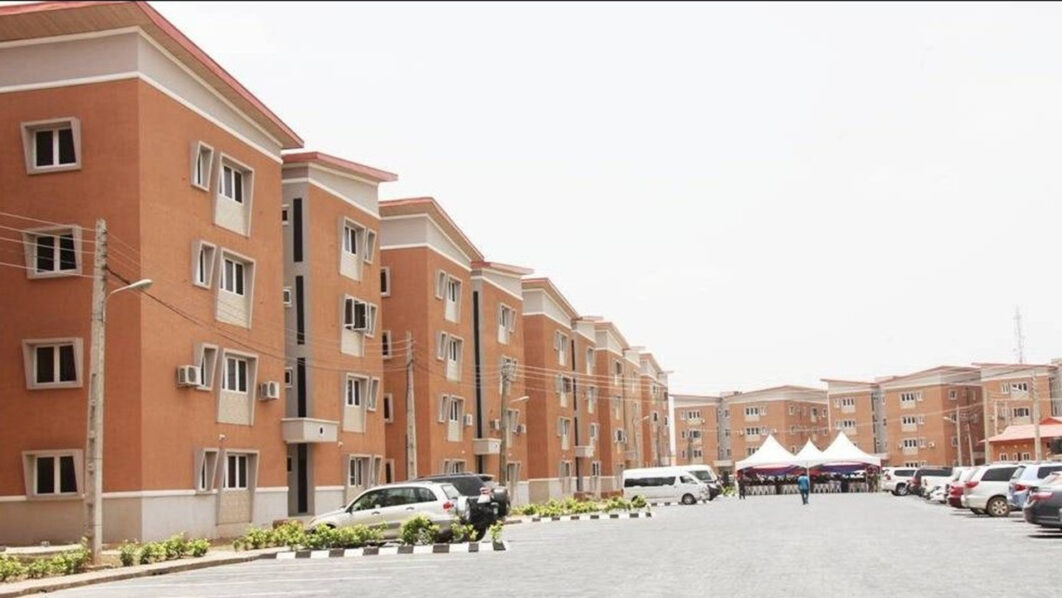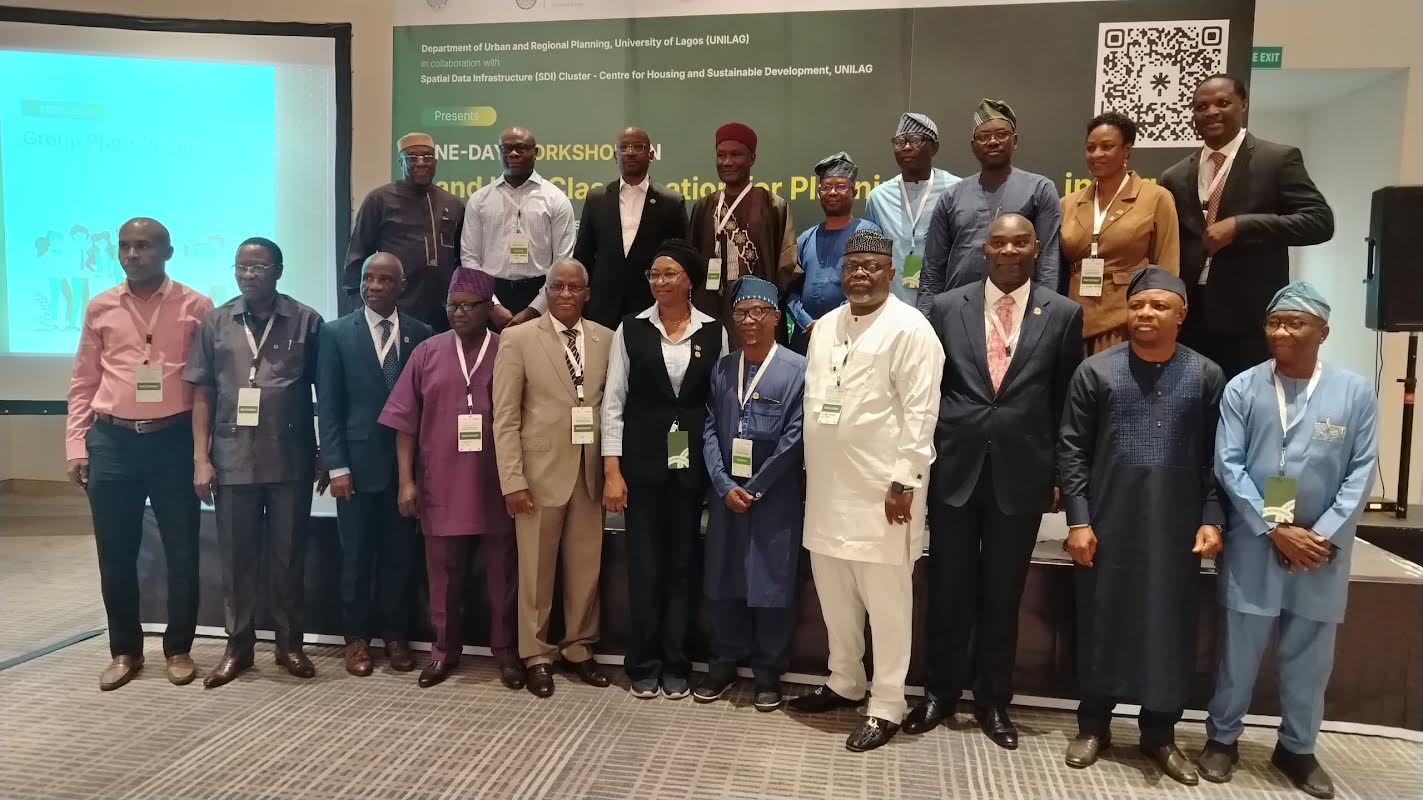
Despite rising inflation and policies that have restricted growth and slowed down the economy, experts predict that the 2025 housing market will witness continued demand for affordable housing, driven by urbanisation and city population growth.
They also foresee a rise in property value, albeit at a more subdued level. Key developments likely to shape the market include introducing innovative financing models such as the MOFI Real Estate Investment Fund (M-REIF), the Family Home Funds Mortgage Finance Scheme, and providing funding for both the demand and supply sides of Nigeria’s real estate sector.
At the beginning of 2024, the real estate market appeared a bit stable, and most investors were elated with the expectation of a vibrant property market, which only lasted for a while before the bubble burst. The economy witnessed spiral inflation, causing the Central Bank of Nigeria to adjust the interest rate in a bid to curb inflation, but prices remain sticky, making it difficult to predict business outcomes.
The volatility of the economy has had a huge impact on the real estate sector, and as was largely predicted, the sector due to spontaneous increases in the prices of goods and services, experienced tremendous increases in rentals and values across the board in the market space. It was a time when construction activities witnessed robust capital outlays as the prices of building materials readjusted heavily to the influence of the forces of demand and supply.
Prices of building materials, particularly cement, steel, and tiles continued to rise, thus constraining the introduction of new real estate products into the market. The actions of the banks have not been able to curtail inflation as the cause of inflation is not likely that of much money chasing few goods but cost-push Inflation arising from naira devaluation and increase in the price of fuel.
In October 2024, the headline inflation rate was 33.88 per cent from 32.70 per cent in September 2024, with the naira continuing to devalue against the dollar at N1,670 to a dollar in the parallel market and N1,534 at the interbank rate, last week. The building industry, which also relies on the importation of some materials components, was exposed to price fluctuations.
However, experts in their assessment said, Lagos, Abuja, and Port Harcourt will continue to witness an increase in values and notable changes, as well as preferred destinations of investors, driven by direct investments and business activities. Real estate growth in these areas remains closely tied to their economic significance and strategic locations, while Ogun and Oyo States, due to their proximity to Lagos and expected to continue their sustained growth.
Chairman, Board of Trustees of the Nigeria Institution of Estate Surveyors & Valuers (NIESV), Prof Austin Otegbulu, told The Guardian that the 2024 economic situation did not only affect rent but also the operational costs of both residential and commercial developments, which increased cost of living and constrained businesses from expanding due to high operational cost.
Otegbulu stated that the 2025 housing market will be affected by cost-push inflation that will result in high construction costs and the introduction of fewer houses into the market. “There’s an urgent need to curb inflation by addressing the scissors effect of naira floatation and increase in the price of fuel on the economy. Businesses are closing up, and workers are finding it difficult to cope with the cost of living,” he added.
The Chief Executive Officer/Senior Partner, Knight Frank Nigeria, Frank Okosun, disclosed that the real estate market has shown resilience driven by economic optimism and hopes for the impact of key policies. “The residential sector remains attractive for investors, despite rising costs. Inflation has led to some value adjustments; still, the market is active. Retail has been mixed, with challenges for large chains but strong interest in smaller and neighbourhood projects. The office market adjusts to oversupply and hybrid work with flexible lease strategies, while industrial thrives in special nodes.”
He said the 2025 growth will be driven by healthy housing fundamentals, strong socio-demographic factors such as urbanisation and a young, expanding population, “The Minister of Housing and Urban Development is also driving for more financing in the housing budget. These trends will continue to shape housing demand and supply, and influence the types and sizes of homes needed to meet evolving preferences.”
An estate surveyor and Chairman of Estate Links Limited, Gbenga Olaniyan, noted that the 2024 real estate market was relatively stable. “In other climes, when you have dwindling economic fortunes, the real estate market gets adversely affected and values drop. However, Nigeria has defied this logic, partially because most properties are not leveraged and as such, there is no panic of inability to meet mortgage obligations.”
He told The Guardian that investors are becoming more cautious. “The unprecedented rise in building material prices stalled several projects midway and others didn’t start. Many developers claimed force majeure and attempted to renege on pre-agreed selling prices, while rent increment in residential real estate reached unprecedented levels.”
According to him, the cost of building materials, confidence in the economy and Foreign Direct Investment (FDI) will be major factors to influence trends in 2025. Government regulations/ policies will affect the diaspora market’s mindset such as demolitions, and compulsory acquisitions.
While urging the government to embark on image laundering, Olaniyan said: “Confidence in the market has been dented in 2024 with the confusion arising from compulsory acquisition for the Lagos-Calabar highway and demolitions in Abuja amongst others. Communication of policies and laws needs to be improved upon.”
Past chairman of NIESV’s Faculty of Estate Agency and Marketing, Mr Sam Eboigbe, said residential, retail, and commercial tenants in various locations were involved in defaults and meeting rental obligations, adding that professional firms’ preference for business innovation models in the use of the state-of-the-art technology for cost reduction demystified uncertainties in the sector.
He stated that the sector in 2025 is expected to experience stability in construction activities since the Federal Government is taking steps to attend to the reoccurring narratives and setbacks in the economy. “As we see efforts as per issues of security and economy being tacked headlong by the government, it is expected that stakeholders would do the needful in all the segments of the sector. The local and foreign investors should be motivated to resume investments.
“The issues of criminality and banditry in the country should not be a way of life. It is taking too long to get the economy working. The proof that the government is working should reflect in the prices of goods and services as well as affordability,” Eboigbe added.
President of the Real Estate Developers Association of Nigeria (REDAN), Akintoye Adeoye, said the demand for residential and commercial properties in urban centres remained strong, though affordability continued to be a major concern for many Nigerians.
“Urbanisation and the growing need for affordable housing have been vital drivers of the real estate market. Challenges like high inflation, rising interest rates, and a volatile exchange rate have created significant obstacles for developers, investors, and buyers.
“Despite the strong demand for affordable and decent housing, fluctuating material costs and regulatory challenges created significant obstacles in 2024. While some firms engaged in affordable housing projects found opportunities through government partnerships, others faced difficulties with delayed payments and escalating material costs. Generally, the affordable housing sector experienced delays primarily due to rising construction expenses,” he said.
Also, investors experienced mixed results. While there was strong demand for housing in most urban centres across Nigeria, those investing in less urbanised regions faced slower growth due to limited infrastructure development.
Adeoye said the demolitions of properties in Lagos State, particularly in connection with the Lagos-Calabar Coastal Road project, as well as the destruction of other project sites and investments across Lagos State and the FCT further hindered the growth of the real estate sector. These actions, he said discouraged many investors and caused significant setbacks for the country.
He said: “Many investors/developers were forced to seek opportunities in other regions, which exacerbated the housing deficit. Going forward, the government must ensure fairness and transparency in these matters, as the demolitions have far-reaching economic and social consequences.
“While we acknowledge the government’s efforts, we believe the rule of law must be upheld, and fair and just compensation must be provided to the affected developers. For instance, Lagos State has initiated compensation for affected parties.
The government at all levels must engage in open, transparent dialogue with developers and stakeholders before embarking on projects that displace citizens and disrupt livelihoods.”
According to him, tenants faced significant challenges in 2024, particularly in urban areas, where rising rents were driven by inflation and increased maintenance costs, “Many tenants sought more affordable options, opting for co-living spaces or relocating to the outskirts of cities.
The cost-of-living crisis made affordable housing a pressing issue, with many tenants choosing smaller apartments or moving to suburban areas to cope with the rising costs.”
Adeoye said economic stability, achieved through controlling inflation and stabilising the currency, will be crucial for managing construction costs, regulating the price of building materials such as cement, and ultimately improving housing affordability.






